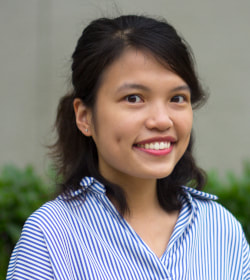Garcia is specializing in Teaching, Learning and Education Improvement. Her research interests lie in the intersection of design theory, critical theory, and learning sciences with a focus on STEM K-12 education. She is advised by Warschauer and Assistant Professor June Ahn.
Jacob’s research interests are interdisciplinary, bringing theory from the learning sciences, computer science education, and applied linguistics to study the teaching and learning of computing and computational thinking to multilingual students. She is advised by Warschauer and specializing in Language, Literacy, and Technology. Richardson’s research over most of her career has been in software engineering. Currently, she is working on broadening participation in computing, largely through expansion of quality, relevant K-16 computer science education, with the explicit purpose of reaching students of underserved groups. Warschauer"s research foci include digital learning, language and literacy, STEM, and learning analytics. As director of the Digital Learning Lab at UC Irvine, he guides a range of research projects related to digital media in education. Abstract This paper examines teachers' use of Flipgrid, a student-facing video platform, as a reflection tool to promote computer science language in upper elementary classrooms. We take a case-study approach with three fourth grade teachers: one had a high number of students with special needs, one had substantially more gifted and talented students, and one taught a dual immersion English-Spanish class. Data sources include teacher interviews, design meetings between researchers and teachers, and classroom observations. We find that teachers with different pedagogical visions adopted the tools for reinforcement, student engagement, and formative assessment. We document teachers' iterative improvement strategies and shifts in teacher noticing, particularly the objects (i.e., computer science vocabulary and concepts), level (i.e., whole-class versus individual students), and depth of how they noticed students learning through video reflections. This study contributes to the ongoing work that examines instructional approaches to promoting computing education in diverse K-12 classrooms, especially among teachers with no formal training in computer science education. Comments are closed.
|
Resources for:
|
|


